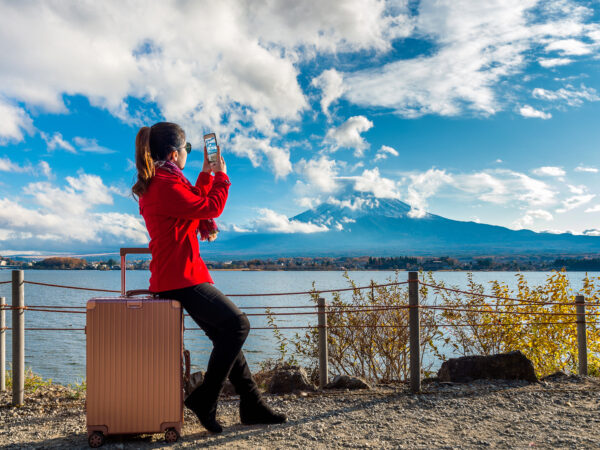Traveling abroad can be a thrilling and enriching experience, as it exposes you to new cultures, languages, customs, and ways of thinking. However, it can also be a challenging and sometimes awkward experience, as you navigate unfamiliar territory and try to communicate effectively with locals who may not speak your language or share your values. In simple words we sometimes lost in translation right?
In this article, we will explore some of the common pitfalls and joys of cultural exchange, using examples from real-life adventures and misadventures around the world. We will also provide some practical tips for overcoming language barriers, adapting to local customs, and cherishing the diversity of humanity.
Lost in Translation: Misunderstandings and Humor
One of the most common challenges of traveling abroad is the language barrier. Even if you can speak a few words of the local language, you may find it difficult to understand accents, slang, or idioms that are unique to that culture. Likewise, locals may struggle to understand your accent, grammar, or vocabulary.
This can lead to some amusing and sometimes awkward interactions, such as the following examples:
– In China: a Western visitor asked a taxi driver to take him to “Fengqingyuan,” which he thought was the name of a famous tourist site. However, the driver had no idea what he was talking about, as “Fengqingyuan” sounded like gibberish to him. It turned out that the visitor had mispronounced the Chinese name, which should have been “Fenghuangyuan.” Once he corrected his pronunciation, the driver knew exactly where to go.
– In France: a British visitor tried to order a croissant for breakfast, but didn’t know how to pronounce the word properly. He said “cross-ant” instead of “kwa-san,” which made the waiter chuckle and correct him. The visitor took it in good humor and learned a new French word.
These examples illustrate how language barriers can lead to misunderstandings and humor, but also how they can be overcome with patience, persistence, and a sense of adventure. By being open to learning new words, pronunciations, and customs, we can bridge the gap between cultures and appreciate each other’s uniqueness.
Lost in Translation: Cultural Differences and Sensitivity
Another challenge of traveling abroad is navigating the cultural differences that may exist between your home country and the country you are visiting. These differences can range from minor quirks and taboos to major values and beliefs.
For example, here are some cultural differences that may surprise or confuse you as a foreign visitor:
– In Japan: it is customary to bow when greeting someone, rather than shaking hands. The depth and duration of the bow may vary depending on the social status and relationship between the parties. If you don’t bow back or don’t bow enough, you may give offense.
– In India: it is considered rude to eat with your left hand, as it is traditionally used for cleaning oneself after using the toilet. You should always use your right hand for eating, drinking, touching, or giving items to others.
– In Saudi Arabia: it is forbidden to bring any non-Islamic religious items, such as Bibles or crucifixes, into the country. Likewise, any public display of affection between unmarried couples is considered illegal and immoral.
These examples show how cultural differences can be both fascinating and challenging for foreign visitors. On the one hand, they offer a glimpse into the rich tapestry of human traditions and experiences. On the other hand, they require us to be respectful, curious, and adaptable to avoid unintentionally offending or violating local norms.
Lost in Translation: Practical Tips for Cultural Exchange
So how can you make the most of your cultural adventures abroad, despite the obstacles and differences you may encounter? Here are some practical tips based on the experiences of seasoned travelers and scholars:
– Learn some basic phrases and greetings in the local language, as a sign of respect and goodwill. Even if you make mistakes or have a limited vocabulary, locals will appreciate your effort to communicate with them in their own language.
– Read up on local customs, taboos, and traditions before you arrive, to avoid unintentional faux pas or misunderstandings. Some websites, books, or guides may provide insights into the cultural background of the country, its history, religion, and social norms.
– Be flexible and patient when things don’t go as planned or as expected. Traveling abroad can be unpredictable, and you may encounter delays, cancellations, or cultural clashes that require you to adapt your plans or expectations. Rather than getting frustrated or angry, try to maintain a positive attitude and a sense of humor.
– Seek out local experiences and interactions that expose you to the diversity of the country’s people and traditions. This could include visiting markets, attending festivals, dining in local restaurants, or staying with a local host family. By immersing yourself in the local culture, you can enrich your understanding and appreciation of the country and its people.
– Reflect on your own cultural biases and assumptions, and try to avoid judging or stereotyping others based on their race, religion, or nationality. Remember that every person is unique and complex, and that we all have our own biases and blind spots. By practicing empathy and humility, we can foster mutual respect and understanding between cultures.
Conclusion
Lost in Translation: Cultural Adventures in Foreign Lands can be a daunting and exhilarating experience that tests your skills, patience, and sensitivity.
By approaching it with curiosity, respect, and openness, however, you can make lifelong memories and learn valuable lessons about the richness and diversity of human cultures.
Whether you are a seasoned traveler or a first-time adventurer, remember that every new encounter and experience is an opportunity to grow and expand your horizons.
By embracing the challenges and joys of Lost in Translation, you can become a more curious, compassionate, and cosmopolitan global citizen.











